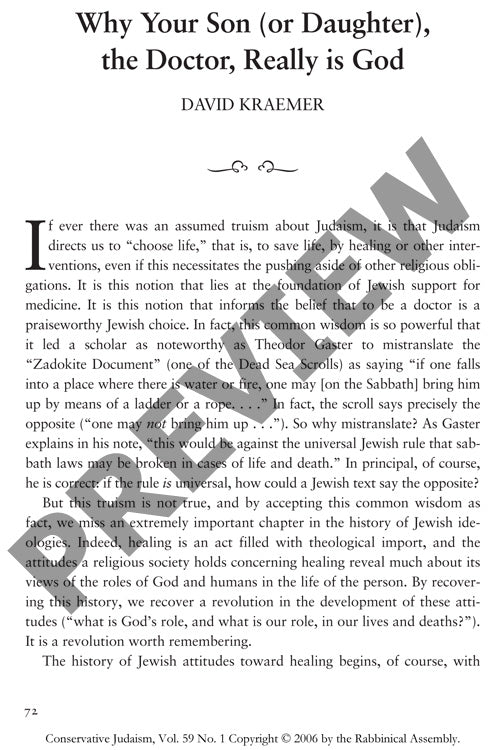Why Your Son or Daughter the Doctor Real
Couldn't load pickup availability
Jewish support for medicine and medical practice stems not from ancient tradition but from a revolutionary theological shift that unfolded over centuries. While modern Judaism strongly prioritizes saving life through medical intervention, the Hebrew Bible originally positioned healing as God's exclusive domain, viewing human medical practice as inappropriate or even forbidden. Through philological analysis of the Hebrew root r-f-a ("heal") in biblical texts and examination of rabbinic literature, a dramatic transformation emerges in Jewish attitudes toward healing. A pivotal moment occurred in the early second century BCE, when Ben Sira's apocryphal work offered an unprecedented defense of physicians, revealing an active debate between traditionalists and those advocating for divine-human partnership in medicine. The methodology traces this evolution through close textual analysis of biblical passages, Talmudic discussions, and medieval rabbinic commentaries, with particular focus on sources from Exodus, Ecclesiastes, the Babylonian Talmud, and Nahmanides' writings. This theological revolution fundamentally redefined the relationship between divine sovereignty and human agency, elevating human initiative and wisdom in matters traditionally reserved for divine intervention. The transformation demonstrates how religious practice both reflects and shapes underlying theological beliefs about the covenant between God and humanity.

More Information
-
Physical Description
-
Publication Information
Published 2006
ISBN
-
Publication Credits
David Kraemer

